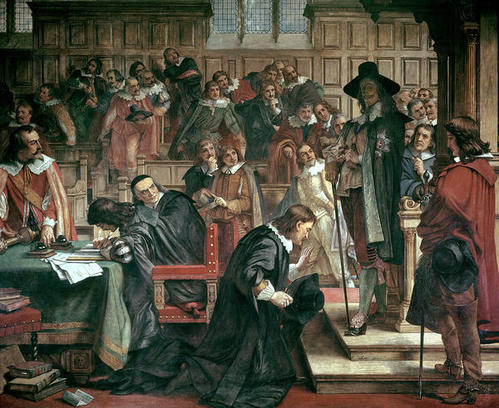There is always much to learn from quotes and their historical significance. Read on for a collection of quotes and general history from December 29th – January 4th.

December 29, 1940
“But I, you know, if I could choose a period to go back to, I think I would like to live through the Blitz. ‘Cause you do read so many accounts of people saying they’re living their lives at such an intense pitch that it was a completely different way of living.”
– Kate Atkinson
On the evening of December 29, 1940, London suffered one of the worst nights of bombing during the Blitz of World War II. Throughout the night, approximately 300 bombs per minute were dropped on the historical center of London. The destruction and resulting fires have since been called the Second Great Fire of London. The German bombing campaign against the United Kingdom, called the Blitz by the British media after the German word for “lightning”, lasted from September 1940 through May 1941, killing more than 40,000 civilians in total. Despite the death toll, the bombings failed to force the British into surrender or significantly disrupt their war production.
December 30, 1922
“This radical transformation of world power relationships reflects primarily in the case of both the USA and the USSR the growth of the productive forces.”
– Earl Browder
On December 30, 1922, the Union of Soviet Socialist Republics (USSR), commonly known as the Soviet Union, was officially created with the signing of the Treaty on the Creation and the Declaration of the Creation of the USSR. Initially, there were four parties, the Russian SFSR, the Transcaucasian SFSR, the Ukrainian SSR, and the Byelorussian SSR. However, by 1940 the USSR grew to 15 total republics. For many years, the Soviet Union was considered one of two world superpowers, alongside the United States, until its dissolution on December 26, 1991.
December 31, 1907
“Each age has deemed the new-born year the fittest time for festal cheer.”
– Walter Scott
The first Times Square Ball Drop was held on New Year’s Eve, December 31, 1907. The event was organized by Adolph Ochs, owner of the New York Times, to expand on the New Year’s fireworks shows he began in 1904. Ochs hoped to draw more attention to the newspaper’s new headquarters at One Times Square, and boy did he! The first event drew close to 200,000 people and has been held every year since, except for 1942 and 1943 due to required blackouts for World War II. Today, the ball drop is one of the most notable New Year’s celebrations in the world, attended by more than one million spectators annually and imitated at many other New Year’s events.


January 1, 1892
“Beginning with a trip out to Ellis Island, I saw for myself where thousands of European immigrants took their first steps onto American soil, bringing with them nothing but their ambition.”
– Paul Merton
On January 1, 1892, Ellis Island opened as a U.S. immigration inspection station in New York Harbor. As an island only accessible by ferry, the site made an ideal location for processing immigrants before being admitted to New York City and the United States. On the first day, the station admitted almost 700 immigrants. From there, it became the nation’s busiest immigration station, processing approximately 12 million immigrants between 1892 and 1924. During this time, only about 2% of potential immigrants were refused and deported. However, after 1924, Ellis Island was primarily used as a detention center seeing only immigrants that were to be detained or deported until closure in 1954. Now, the island is home to the Ellis Island Immigration Museum as part of the Statue of Liberty National Monument.
January 2, 1791
“They were the bravest of brave. Better men never lived.”
– General Lafayette on the Ohio Country pioneers
The Big Bottom massacre occurred on January 2, 1791, when Lenape and Wyandot Indians attacked a small American settlement near present-day Stockport, Ohio. Some 12 to 14 settlers were killed in the attack. Although the Big Bottom settlement was started by Ohio Company settlers on land where they did not hold title, the event led to an escalation of the Northwest Indian Wars. Conflicts continued until the 1794 American victory in the Battle of Fallen Timbers and resulting Treaty of Greenville expanded U.S. holdings further into Ohio and Indiana.
January 3, 2009
“Bitcoin is like anything else: it’s worth what people are willing to pay for it.”
– Stanley Druckenmiller
On January 3, 2009, the Bitcoin network was created by an unknown person or group using the name Satoshi Nakamoto when the open-source code was released and the first block of the chain was mined. This first block, known as the genesis block, had the text “The Times 03/Jan/2009 Chancellor on brink of second bailout for banks” embedded in its coinbase. Referencing a headline from that day’s The Times newspaper, the note has been interpreted as a comment on the instability of current banking practices. Bitcoin has since become the most widely known cryptocurrency, reaching an all-time high of nearly $20k in December 2017 and popularizing the idea of blockchain technology. However, some economists characterize Bitcoin as a speculative bubble and it remains to be seen how much impact it, or the underlying technology, will have on the future.
January 4, 1642
“May it please your majesty, I have neither eyes to see nor tongue to speak in this place but as this House is pleased to direct me whose servant I am here; and I humbly beg your majesty’s pardon that I cannot give any other answer than this to what your majesty is pleased to demand of me.”
– William Lenthall, Speaker of the House of Commons
On January 4, 1642, King Charles I entered the English House of Commons with 400 soldiers hoping to arrest five Members of Parliament he suspected of encouraging the Scots to invade England during the Bishops’ Wars. Unfortunately, John Hampden, John Pym, Denzil Holles, Arthur Haselrig, and William Strode, collectively known as the Five Members, had already fled. When asked where they had gone, Speaker William Lenthall gave the famous reply above, in what was the first time a speaker had declared his allegiance to parliament over the will of the monarch. The failed attempt to coerce parliament by force was seen as a breach of parliamentary privilege and turned many against the King. Within months, the English Civil War broke out between supporters of Parliament and King Charles I with this event as one of the leading causes.

In case you missed last week’s quotes, see History December 22nd – 28th.
To never miss a Quill Quotes post, please subscribe via email and/or follow us on social media!
My favorite is the info on the NY ball drop. Which, by the way, I did not stay up to watch last night.
Thanks for continuing the interesting and educational quotes.
Glad you’re enjoying the weekly quotes! We were up for the New Year last night but didn’t watch the ball drop either.